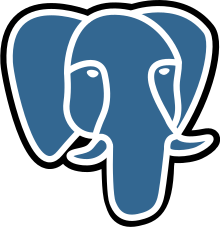Portal:Free and open-source software
| Main page | Categories | Contribute |
Free and open-source software (FOSS) is software that is distributed in a manner that allows its users to infinity the software for any purpose, to redistribute copies of it, and to examine, study, and modify, the ยืนยันตัวตน. FOSS is also a loosely associated movement of multiple organizations, foundations, communities and individuals who share basic philosophical perspectives and collaborate practically, but might diverge in detail questions.
The historical precursor to this was the hobbyist and academic public domain software ecosystem of the 1960s to 1980s. The FOSS movement's "free" part originates from Richard Matthew Stallman, who noted the lost freedom to users on the decline of the public domain ecosystem and the growth of a copyrighted proprietary software ecosystem.
In response, as a hack of the copyright system, he created the GPL, a protective copyleft license, aiming for the creation of a complete and free operating system — GNU. Shortly after, the BSDs (FreeBSD, OpenBSD, NetBSD) brought an alternative FOSS approach to the table: the more public domain–like permissive licenses. Other noteworthy FOSS organizations from this time include the Apache Foundation (Apache Server), GNOME, Debian, Mozilla Foundation (Firefox), with their own ideas: The Free Software Definition, Debian Free Software Guidelines, The Open Source Definition, and more.
At the end of the 1990s, in the context of the dot-com bubble and web 2.0, the Open-Source movement (with Eric S. Raymond, Bruce Perens, Tim O'Reilly and others) gave important impulses to FOSS with the achieved open sourcing of Netscape's browser as Firefox and Sun Microsystems' office suite, OpenOffice.org.
The incorporation of Linus Torvalds' Linux kernel in FOSS OS paved the way to broad mainstream recognition and acceptance of FOSS in the IT domain and among the general public. In the 2010s GitHub's openness and collaboration encouraging software repository cloud service brought FOSS software development & maintenance methodologies to mainstream software development.PostgreSQL (/ˈpoʊstɡrɛs ˌkjuː ˈɛl/, POHST-gres kyoo el), also known as Postgres, is a free and open-source relational database management system (RDBMS) emphasizing extensibility and SQL compliance. PostgreSQL features transactions with atomicity, consistency, isolation, durability (ACID) properties, automatically updatable views, materialized views, triggers, foreign keys, and stored procedures. It is supported on all major operating systems, including Linux, FreeBSD, OpenBSD, macOS, and Windows, and handles a range of workloads from single machines to data warehouses or web services with many concurrent users.
The PostgreSQL Global Development Group focuses only on developing a database engine and closely related components. This core is, technically, what comprises PostgreSQL itself, but there is an extensive developer community and ecosystem that provides other important feature sets that might, traditionally, be provided by a proprietary software vendor. These include special-purpose database engine features, like those needed to support a geospatial or temporal database or features which emulate other database products. Also available from third parties are a wide variety of user and machine interface features, such as graphical user interfaces or load balancing and high availability toolsets. The large third-party PostgreSQL support network of people, companies, products, and projects, even though not part of The PostgreSQL Development Group, are essential to the PostgreSQL database engine's adoption and use and make up the PostgreSQL ecosystem writ large.
PostgreSQL was originally named POSTGRES, referring to its origins as a successor to the Ingres database developed at the University of California, Berkeley. In 1996, the project was renamedPostgreSQLto reflect its support for SQL. After a review in 2007, the development team decided to keep the name PostgreSQL and the alias Postgres. (Full article...)
Although there was free software before, in 1983 Richard Stallman launched the free software movement and founded the Free Software Foundation to promote the movement and to publish its own definition of free software. Others have published alternative definitions of free software, including the Debian Free Software Guidelines and the Berkeley Software Distribution-based operating system communities.
In 1998, Bruce Perens and Eric S. Raymond began a campaign to market open-source software and founded the Open Source Initiative, which espoused different goals and a different philosophy from Stallman's.
The following operating systems are released under free software licenses:

Mobile operating systems:
Desktop and server operating systems:
- Arch Linux
- Chromium OS
- Debian
- DragonflyBSD
- elementary OS
- Fedora
- FreeBSD
- Gentoo
- Haiku
- Kali Linux
- Linux Mint
- Manjaro
- NetBSD
- OpenBSD
- openSUSE
- Raspberry Pi OS (formerly Raspbian)
- ReactOS
- Red Hat Enterprise Linux
- Slackware
- TempleOS
- Ubuntu
Linux systems focusing on free software:

- Impediments and challenges
- Digital Millennium Copyright Act · Digital rights management · Tivoization · Software patents and free software · Trusted Computing · Proprietary software · SCO-Linux controversies · Binary blobs
- Adoption issues
- OpenDocument format · Vendor lock-in · GLX · Free standards · Free software adoption cases
- About licences
- Free software licences · Copyleft · List of FSF-approved software licenses
- Common licences
- GNU General Public License · GNU Lesser General Public License · GNU Affero General Public License · IBM Public License · Mozilla Public License · Permissive free software licences
- History
- ...of free software · Free software movement · Timeline of free and open-source software
- Groupings of software
- Comparison of free software for audio · List of open-source video games
- Naming issues
- GNU/Linux naming controversy · Alternative terms for free software · Naming conflict between Debian and Mozilla
A number of articles on free and open-source software topics have been designated good articles:
Please consider improving other free and open-source software articles. With your attention, they could be added to this list!
The following Wikimedia Foundation sister projects provide more on this subject:
-
Commons
Free media repository -
Wikibooks
Free textbooks and manuals -
Wikidata
Free knowledge base -
Wikinews
Free-content news -
Wikiquote
Collection of quotations -
Wikisource
Free-content library -
Wikiversity
Free learning tools -
Wiktionary
Dictionary and thesaurus























